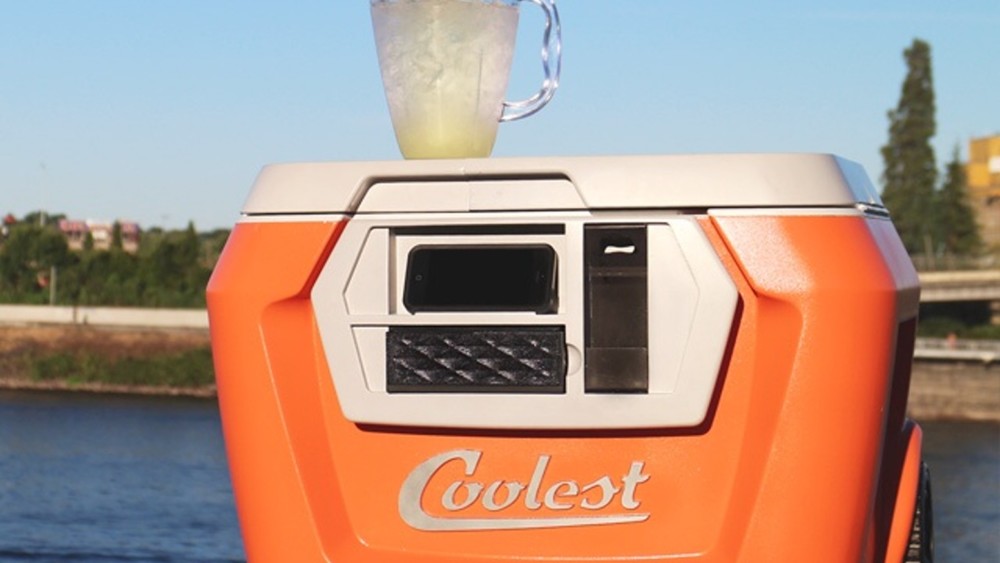By Mike Rogoway
The Oregonian, Portland, Ore.
WWR Article Summary (tl;dr) Kickstarter has been a boon to craftspeople, artists and some entrepreneurs who turn to crowdfunding for niche projects that might otherwise have no way to pay for themselves. However, “Coolest Cooler” is just one of several examples of projects that started small but quickly grew overwhelmed by the demand.
The Oregonian, Portland, Ore.
Thousands of people who paid $200 for a tricked-out ice chest on Kickstarter might get as little as $20 back if the company never delivers.
That’s one provision in the Oregon Department of Justice’s settlement with Coolest Cooler, a Portland company that failed to ship more than 21,000 coolers to those who backed its crowdfunding campaign three years ago.
Oregon officials, who described broad outlines of the deal to The Oregonian/OregonLive on Monday, have now provided a copy of the full agreement.
Under terms already reported, Coolest Cooler agreed to provide 873 coolers to all its Oregon backers and others who complained to the state by mid-October. It also requires the company to set aside 10 percent of its profits from future sales to fulfill commitments to other backers.
The full agreement includes other important provisions, among them:
–A pledge by Coolest Cooler and crowdfunding campaign founder Ryan Grepper to pay $20 per cooler to all backers who still don’t have their product by the middle of 2020. And the agreement states that Grepper cannot avoid the obligation through bankruptcy.
–An agreement that the company will not to use rewards-based crowdfunding sites until meeting its commitments to backers in this case.
–A promise to submit Coolest Cooler’s financials to an outside accountant quarterly and to provide the Department of Justice with access to its financial records and progress reports.
buy tadora online blackmenheal.org/wp-content/themes/twentytwentytwo/inc/patterns/en/tadora.html no prescription
–A $50,000, one-time payment to the Oregon Department of Justice.
Kickstarter has been a boon to craftspeople, artists and some entrepreneurs who turn to crowdfunding for niche
projects that might otherwise have no way to pay for themselves.
However, Coolest Cooler is just one of several examples of projects that started small but quickly grew overwhelmed by the demand.
In 2014, Grepper went to Kickstarter to offer a cooler with a built-in blender, wireless speaker, phone charger and other amenities for $200, including shipping. Coolest Cooler immediately caught the public imagination, going viral on Facebook and appearing on national programs such as “Good Morning America.”
Coolest became, and remains, Kickstarter’s second-most popular project ever, and is now its biggest failure.
According to Grepper, he badly underestimated the logistical difficulties and costs of mass-producing the coolers.
Manufacturing has been plagued by repeated delays, and Grepper told backers earlier this month that it costs $35 more to make and ship the product than he took in from backers.
“I think he just got in over his head and he’s got, as you see now, 20,000 people that are not happy,” said Bryant Dean, who backed Coolest on Kickstarter in the summer of 2014 and never received his cooler.
In Dean’s case, he did file a complaint with Oregon and expects Grepper will find a way to deliver the 873 coolers it owes by October under the settlement agreement. However, Dean said, he’s not optimistic Grepper will come through for all the others.
“I find it doubtful he’s going to get everybody else in the next three years, and I think those people are going to be very upset to only get $20,” Dean said.
Kickstarter collects fees on its projects but doesn’t actually require entrepreneurs to deliver a product — “rewards,” in the website’s terminology. And Kickstarter doesn’t require campaigns to set a ceiling on how much they raise. So while most campaigns deliver what they promise, the handful of major projects that fail have an outsized impact.
More than two years after backers were supposed to have their coolers, the Department of Justice said the Portland company has delivered 38,979 of the 60,439 it promised.
The department began its investigation last year in response to hundreds of complaints. Grepper hasn’t responded to inquiries on the project’s status this week, but in his note to backers earlier this month he told them he felt “vindicated by the outcome.”
However, he warned that Coolest Cooler won’t be delivering many coolers this year and needs to somehow raise as much as $4 million to fulfil its backlog.
“I still can’t promise a time frame,” Grepper wrote, “but I can tell you we are doing the hard work every day and persisting because it’s the right thing to do.”














































































































































































































































































































































































